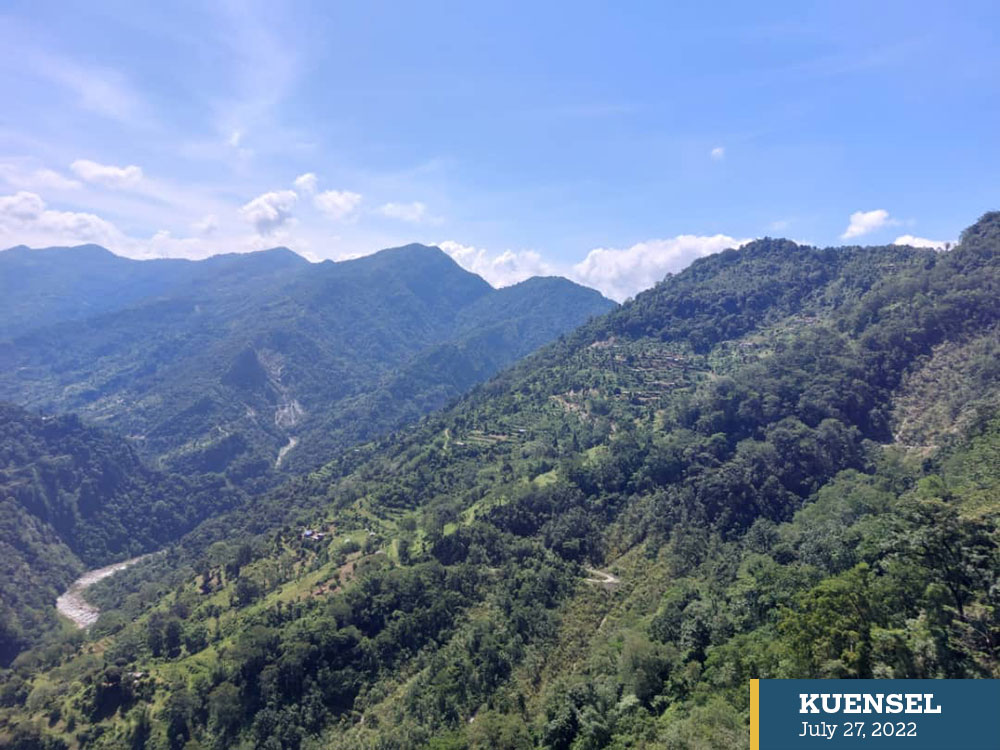Choki Wangmo | Dagana
Norbuling translates roughly to ‘The Land of Jewels’. It is in Tashiding, Dagana.
Perched on a hilltop above Dagachhu, formerly known as Loduma, Norbuling today has 30 households. Most are small-scale farmers.
The village has been facing irrigation and drinking water shortage. The residents are still grappling with this problem but with the Society Switzerland Bhutan-supported project and construction of five water tanks in the chiwog—two 8,000-litre tanks and three 6,000-litre tanks, villagers are thrilled.
Due to lack of irrigation water, farmers said that they could not grow vegetables and crops on commercial scale. There are 69,867 acres of dryland and 0.78 acres of wetland, and 2.303 acres of orchard that are mostly left fallow.
Thek Bdhr Rai, 58, recalled how as a little boy he had to walk 3km every day with his parents to fetch drinking water from a pond at the end of the village. “We had to carry water in a bamboo container, locally known as gaanti. A single trip would take two hours. It was fun but tiring too.”
A young woman was killed by a falling boulder on the way to fetch water. This story is still told in the village whenever the issue of water shortage is discussed.
Water scarcity took toll on women and children.
Duti Maya Shangang, 58, remembers toiling between the pond and her house, carrying containers of water and her infants on the back.
“Women and children are often the ones responsible for collecting water. For women, the water crisis is personal. They are responsible for finding a resource their families need to survive – drinking, cooking, sanitation, and hygiene,” she said.
In a large family, women had to adjust households according to the amount of water available. “Household chores become tedious and children need extra care.”
Today, women around the world spend a collective 200 million hours collecting water, stated the findings from water.org.
Residents of the village said that the burden was reduced in 2006 with the installation of water taps from the Rural Water Supply Scheme.
The shortage, however, is severe from March to May.
With the new water tanks in place and support from the gewog officials, households are planning to grow vegetables and cultivate fallow land.
A committee for vegetable irrigation was formed in November last year. The members are guided by the bylaws of Norbuling Sazhing Zhinchung Detshen, formed in 2007.
It was observed that farmers live in poverty without alternative sources of income. The living standard is comparatively low and houses are poorly built. The major food crops are maize, millet, cassava, and beans.
During monsoon, the farm road goes bad. The village has only one Bolero pickup truck. Mobile network connection is erratic too.
Some villagers blame the delayed Sunkosh Project for delayed development activities in their village.
Built at the cost of Nu 281,000, the project was initiated by the Dagana’s National Council representative, Surjaman Thapa, in collaboration with the local people.


